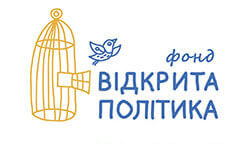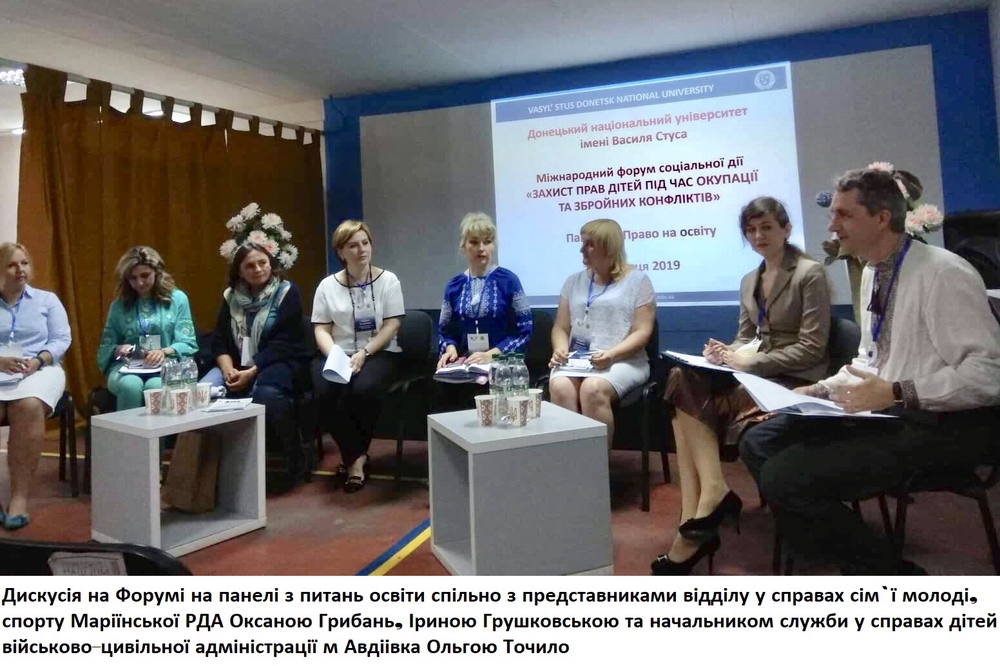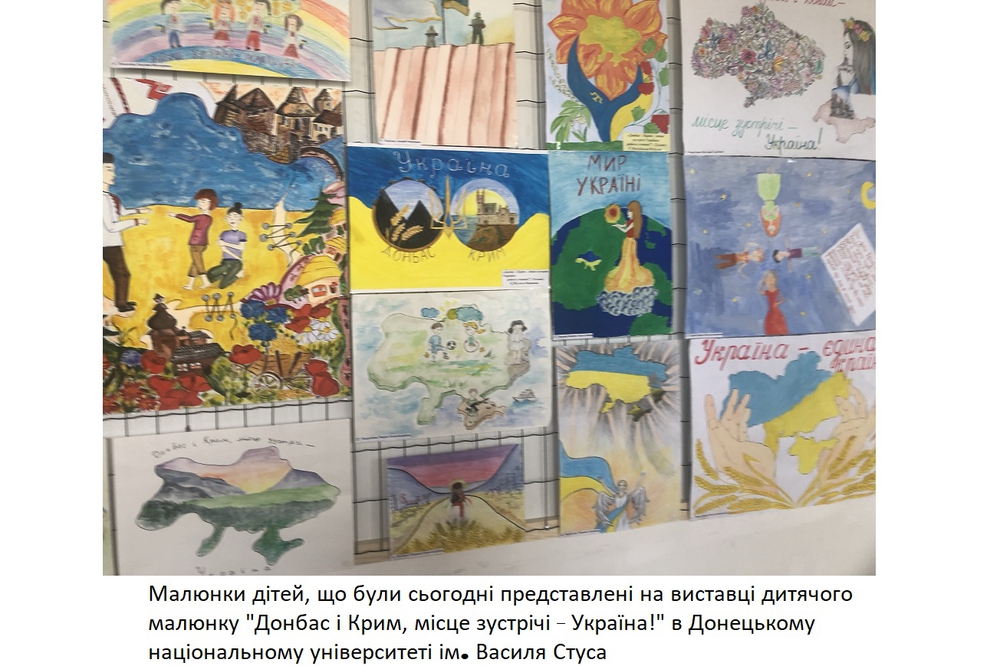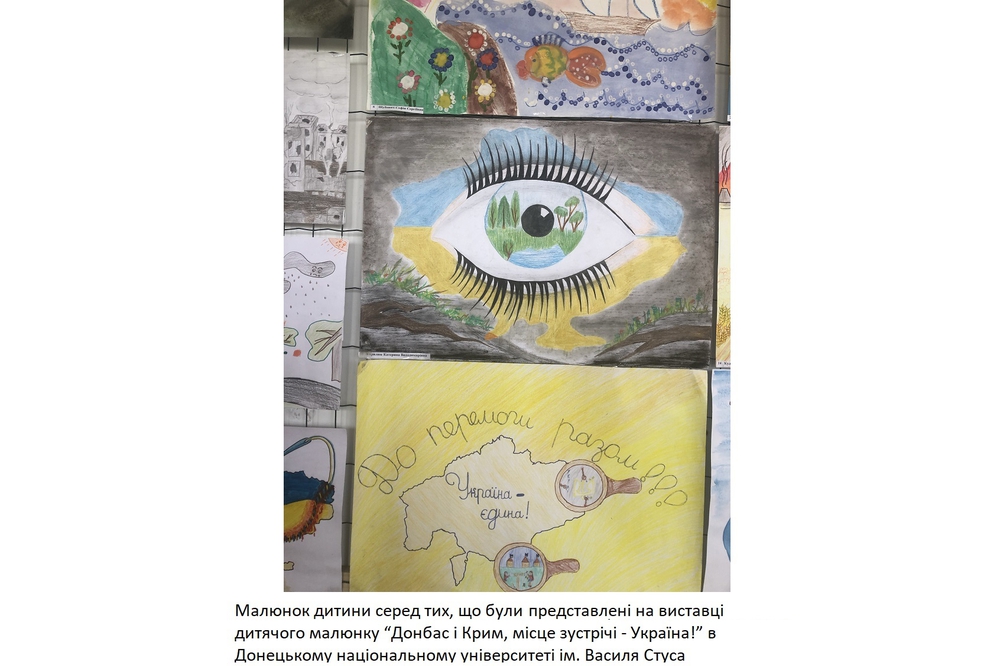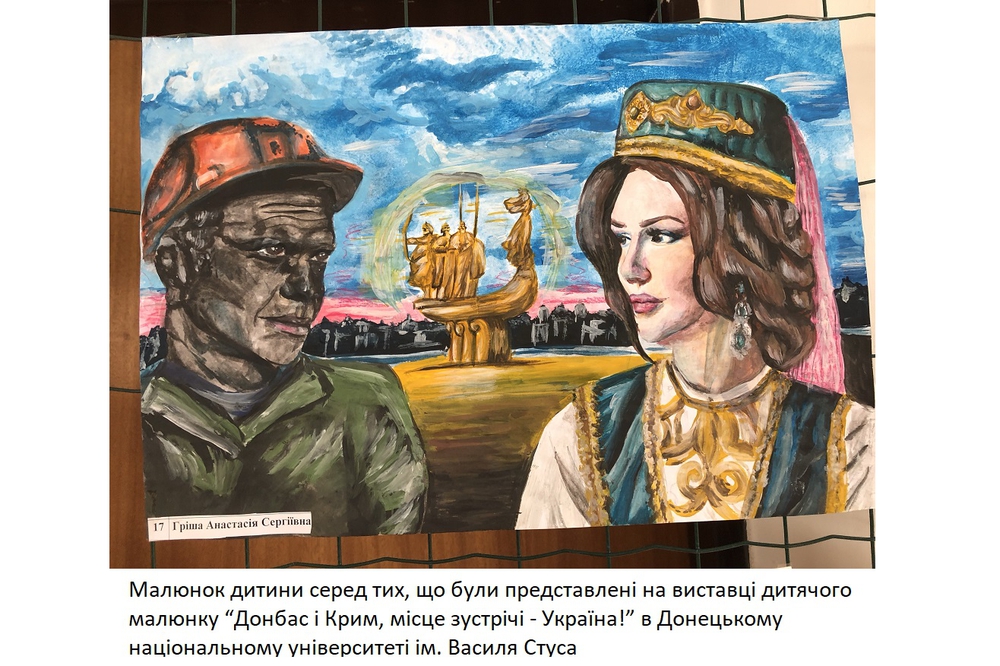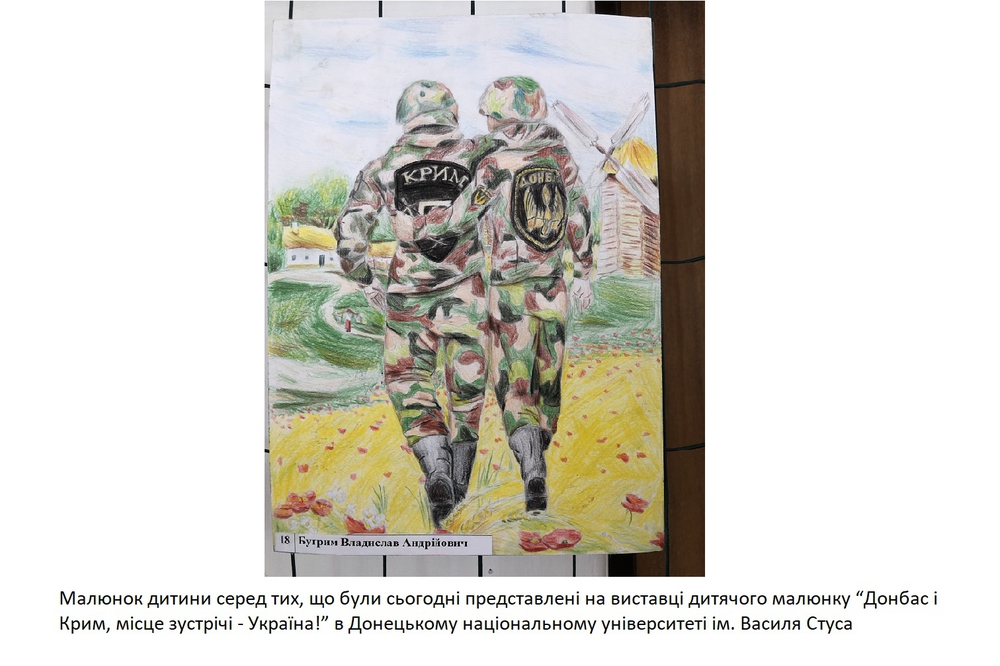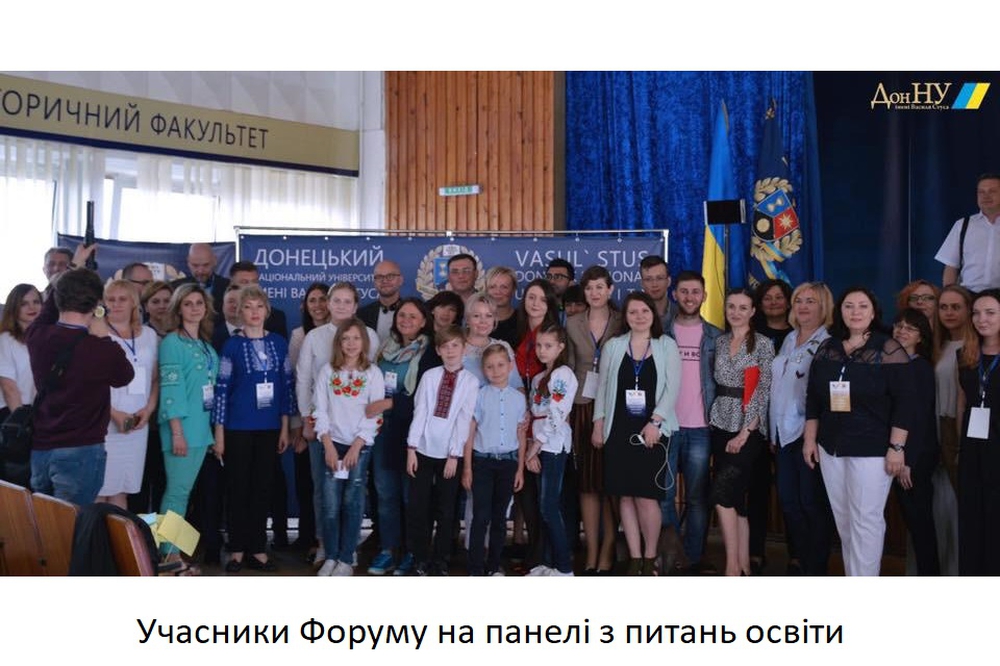News
About trust, courage and the right to children’s lives during the war
June 6, 2019, 10:26 a.m.About trust, courage and the right to children’s lives during the war
“About trust, courage and the right to children’s lives during the war”, Iryna Zhdanova Blog on Lb.ua
https://ukr.lb.ua/blog/irina_zhdanova/428525_pro_doviru_muzhnist_pravo_zhittya.html
No, these terms are not from adults’ life. “The very first right of a child is the right to life.” I heard these words from 12-year-old Mariya in the International Green School. She comes from Verhniotoretske of Donetsk Oblast. The streets of her native town are divided in half by the front line.
Iryna Zhdanova is the general director of the Open Policy Foundation, the expert of the 42nd session of the Intergovernmental Panel on Climate Change (IPCC), and PhD in history.
“How often do we pause and think about life? ...” I asked participants of the International Forum “Protecting the rights of children during the occupation and armed conflicts” at the Vasyl Stus Donetsk National University in Vinnytsia. In response, many hands were raised in a hall. My hands, as well. And, what about the RIGHT TO LIFE?
In fact, it's scary when children talk about it ...
On Child Protection Day, I got even more questions and, most importantly, more motivation to look for answers and have the courage to openly talk about real problems and their solutions. There is a set of important issues that require solutions at regional, national and international levels.
At the regional level
This level includes issues of free transfer, hostels and efficient logistics for entrants from non-government controlled areas of Ukraine; an informational system campaign with schoolchildren, students, parents, and grandparents; pensioners, who cross entry-exit checkpoints (EECPs) in large quantities. There are questions about the psychological readiness of parents and children to leave their homes, even if they are located in areas of active hostilities. A series of the following measures can address these needs:
- Implementation of a cash/voucher system that will reimburse these costs;
- Creation of informational mobile teams that will work with teachers, schoolchildren and parents in areas along the contact line;
- Organization of family festivals in towns and villages, as well as scientific weekends/festivals, family centers at schools, and youth centers, which have both premises and staff;
- Creation of a network of project teams and consulting centers, which can not only write projects but also manage them (which is more important).
For 11 years, the Open Policy Foundation has had a great experience in all these areas (except for the first one): the family traveling festival “How to draw a bird ...”, scientific weekends for families, family centers at schools, the International Green School, national information campaigns from 2015 to 2019 for children and the youth from the occupied territories along the contact line, and a consulting work of the “Open Policy” Analytical Center. These projects have a successful history and are still relevant. Therefore, together with our partners, we are ready to scale our tested practices, adapt and pilot them according to the needs of each community, and create a network. First of all, it is about a network of unindifferent people.
At the national level
There is no effective communication between different agencies and ministries that influence decision-making. After all, regarding access to education for children and young people who have suffered from war, not only the Ministry of Education and Science (MoES) plays a leading role but the Ministry of Information Policy (MIP), the State Border Guard Service, the Ministry of Internal Affairs, the Parliament and other agencies must be also involved. The Ministry of Temporary Occupied Territories and Internally Displaced Persons (MTOT) should coordinate this work and establish open communication with civil society and international partners. BUT. There is a complete communication fiasco in this sphere, in my opinion. A vivid example of the lack of respect for the partners’ work was the coverage of the Open Door Days of the “Donbas-Ukraine” and “Crimea-Ukraine” Education Centers on the website of the Cabinet of Ministers of Ukraine. The press service ‘forgot’ to provide information not only about the Open Policy Foundation’s work but also about the participation of the Deputy Minister of Education and Science Yurii Rashkevych. Although MTOT accounts very often for its work using precisely results of the Foundation's activities, we continue to be like in the cap of invisibility for this ministry. At the same time, MTOT has a mandate to allocate funds provided for Ukraine and form a list of needs for donors.
The second problem is that some laws do not work and important bills are not considered by the Parliament. So, dormitories are not free of charge. And the consideration of the preparatory courses, which planned to work on the government order basis at the Education Centers (the entering these courses does not require the state final attestation (SFA) in the Ukrainian language and the history of Ukraine) is stopped in the Parliamentary committee on science and education. A bill on relevant amendments to the Law “On Higher Education” has been under consideration for more than a year. There are many other issues of course, but these are the most important.
Therefore, the Open Policy Foundation made a proposal for the first vice-prime minister to create an inter-agency working group at the Government on providing access to education for citizens who suffered from war and occupation. I believe very much in the positive solution to this issue.
The third, but not least, the problem is the need to step up an effective information campaign at the national level. There are just a lot of vivid examples of the synergistic steps of the Open Policy Foundation in cooperation with MoES, MIP, the Ministry of Transport, the Ukrzaliznytsia, and local self-government authorities. The hotline is working. There were more than 26 thousand calls.
Only in May of this year, the number of calls from the East was increased by a third compared with last May. It was immediately visible when many banners and posters were placed at all EECPs when video clips were broadcast on monitors in the Ukrzaliznytsya trains. This is our JOINT successful story. At the same time, there is a history of mistakes. This is relevant not only to communications with MTOT but also to the “UA:Pershyi” TV channel. Public television has the mandate to broadcast social videos free of charge. We have regularly provided social video clips for 4 years, but we always get negative answers. At the same time, the public radio regularly creates and broadcasts thematic programs. But, what about television? We have offered MIP to hold brainstorming in June to work out proposals for the next year, and I am personally sure that Artem Bidenko will keep his word, as it has been many times before.
Regarding the hotline, no one today has any doubts about the effectiveness of its work. But there are many discussions about who should organize the hotline’s activity. So, this year it started working at the regional education departments, but the number of calls to the national hotline, which operates at the Open Policy Foundation, is only increasing.
At the same time, the greatest risk is unstable long-term financing. I am convinced that hotlines should not only be run by the government but by public organizations as well. On September 1, it will be a zero hour, “to be or not to be.” Since UNICEF ceases funding, the Education Cluster partners in Ukraine still have not decided who will finance the hotline and whether it is worth financing an information campaign and supporting the work of the Education Centers. Yes, I understand that this is a politically sensitive issue. But will parents, children and young people understand the situation, when they call the hotline on September 1 and an automatic responding machine will answer them: “Sorry, please contact MoES or an education department in your region”? It is necessary to understand that the MoES’s phones do not always answer. There are complaints, and the education departments are not interested in making them public. And officials are just overloaded with other issues, in order to examine them in detail. Each appeal is often a separate unusual story.
Therefore, I personally dream of the time, when the need for the hotline will disappear. We will solemnly close it. But this time, unfortunately, will not come on September 1, 2019...
And here we come to the third level.
At the international level
I apparently have to be brave to talk about the sphere of interest related to millions of euros and dollars. I will try to be tactful. I will try, honestly.
Firstly, whether the monitoring and evaluation of primary needs identification are conducted. Undoubtedly, issues of Mine Awareness are important, but let's sincerely answer the question: have there been so many children and young people, who do not know how to behave for 5 war years? How many resources are allocated for training and advertising? Do we have too many training courses? Perhaps, let’s spend these funds on distance education, an information campaign on access to education, training of teachers, and sustainable infrastructure projects, which include not only the renovation of premises but also create centers of innovative education, preparing employees on the labor market 2020+. Although, this innovative education is already a part of the UNICEF strategy until 2030. Understanding of what is the first humanitarian priority needs is transforming. It is already digital literacy today and not just the elimination of illiteracy.
Secondly, how are the funds used? Is the synergy principle a criterion?
Thirdly, what is the point in the strategy, if the priority areas identified by the UN in the Humanitarian Response Plan are not supported?
That is why, during the Forum at the Donetsk National University today, I gave the Educational Cluster partners small calendars, which we distributed at EECPs for children and the youth from non-government controlled areas. As a reminder that time is going by...
And lastly, ABOUT TRUST
A lack of TRUST between countries leads to war. Regarding the family, it results in its destruction. A lack of trust in each other destroys a safe living space: both personal and national one. So, today it's hard to talk about it without emotion, especially after the election. But not only politicians should speak about it. First of all, it must be the civil society on an average level. It must be not even a talk but a personal example of trust and open platforms implementation without language issues and political preferences. Let’s learn to listen.
I realize that the system result should not be expected in 5 or 10 years ... But right now, it is time to start talking with each other and listening. And, the children possibly are the very chicks around which we can reestablish this dialogue and restore a destroyed nest in order for them and us to fly together without boundaries and lines of delimitation ... I believe.
June 1, 2019. Kyiv-Vinnytsia-Kosmach
The children’s pictures presented today in the Vasyl Stus Donetsk National University at the exhibition of children's drawing “Donbas and Crimea, the Meeting Place is Ukraine!” were used on this blog.

